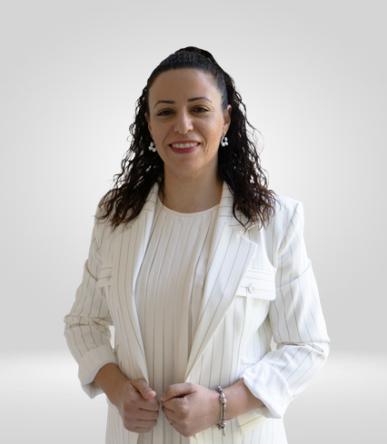
Doç. Dr. ÖZGE RAZI ÇELİK
Eğitim Fakültesi
Ofis
CU230
E-posta
orazi@ciu.edu.tr
Telefon numarası
+90 392 671 11 11
Dahili
2713
Diğer bilgiler
Öz geçmiş
Öğrenim Durumu
- TCD, University of Dublin School of Education (Doktora, 2013)
- Middlsex University TEFL/Applied Linguisitcs (Yüksek Lisans, 2006)
- Eastern Mediterranean University ELT, Foreign Languages (Lisans, 2004)
Yayınlar
Uluslararası hakemli dergilerde yayınlanan makaleler (SCI,SSCI,Arts and Humanities)
- Sustainable Solutions of the Language Communication Problems: Perceptions of Teachers and Students - 2023
- English Preparatory School Learners’ Pragmatic Motivation in a Study Abroad Setting - 2023
- Impact of Instruction Based on Movie and TV Series Clips on EFL Learners’ Pragmatic Competence: Speech Acts on Focus. - 2022
- Investigation of Kurdish Students’ L2 Motivational Self-system and their Motivational Beliefs in High School. - 2022
- Strategy-Instruction and Strategy Clustering in the Development of Young Learners’ Reading Skills. - 2021
- The Effect of Extended UTAUT Model on EFL’S Adaptation to Flipped Classroom. Education and Information Technologies - 2021
- Alawawda, M and Razı, Ö. (2020). Parental Involvement in Early Second Language Learning: The Role of the Immediate Environment. Revista De Cercetare Si Interventie Sociala - 2020
- Adriosh, M. and Razı, Ö. (2019). Teacher’s Code Switching in EFL Undergraduate Classrooms in Libya: Functions and Perceptions. SAGE Open - 2019
Uluslararası diğer hakemli dergilerde yayınlanan makaleler
Ulusal hakemli dergilerde yayınlanan makaleler
Yönetilen Tezler
Yönetilen Doktora Tezleri
- Abdullah, K. N. (2023). An Exploratory Study on Second Language Learners' Sources of Motivation and Teachers' Motivational Strategies in High Schools. - 2023
- Omar, F. R. (2023). Effects of Using Movie and TV Series Clips on Developing Kurdish EFL Learners' Pragmatic Competence. - 2023
- Agyei, C. (2022). The Impact of Flipped Instructional Approach on ESL Learners'' Literary Awareness. - 2022
- Alawawda, M and Razı, Ö. (2020). Parental Involvement in Early Second Language Learning: The Role of the Immediate Environment. - 2020
- Adriosh, M. (2019). Teacher’s Code-Switching in EFL Undergraduate Classrooms in Libya: Functions and Perceptions. - 2019
Yönetilen Yüksek Lisans Tezleri
- Ali, Idrees Muhi (2022). Investigating politeness strategies in Iraqi Bahdinani/ Kurmangi Kurdish with Reference to English. - 2022
- Amr, Abraheem Mohammed (2022). Hurdles Faced by the Teachers in Teaching English Language for Spoken Purposes: A Comparative Study of Private and Public Schools in Libya - 2022
- Review of Academic Studies about code-switching in Pakistan. - 2021
- Nazeh, Asmaa (2021). The Null Subject Parameter. - 2021
- Millad, M. (2019). Learner Autonomy: The Views of EFL Students In Multilingual University Context. - 2019
- Haidov. R. (2019). Opinions of English Language Student Teachers on Content and Language Integrated Learning. - 2019
- Tahhan, L. (2019). Views of Language Teachers on the Use of Mobile Technology in a University Context. - 2019
- Tekok, G. (2019). Primary Teachers’ Attitudes toward Bilingualism. - 2019
- Qarabeel, N. (2018). Libyan Prospective Englısh Teachers’ Level of Implıcature Comprehension. - 2018
- Jawher, S. (2017). Motivational self-regulated strategy for learners in Erbil universities of Iraq. - 2017
- Alhilmi, M. (2017). Difficulties faced by Libyan EFL undergraduate students in speaking skill. - 2017
- Aldrughi, A. M. B. (2017) Motivation of secondary school students in the Libyan context. - 2017
- Saleh, J. S. (2016). Kurdish EFL learners’ and teachers’ attitudes towards the correction of errors in speech in Northern Iraq. - 2016
- Zebari, Z. T. I. (2016). The views of Kurdish EFL students on native & non-native English language teachers in Northern Iraq. - 2016
- Mirza, H. A. (2015). The effects of drama in vocabulary learning in an EFL classroom in Kurdistan Region-Iraq. - 2015
- Ismael, S. M. (2015). The attitudes of EFL teachers and students towards implementing the cooperative learning approach in Kurdistan Region-Iraq. - 2015
- Dinçer, E. (2015). Instructors` use of cultural topics in English language classes. - 2015
- Tokyay, Ç. (2015). Preparatory school students' view on the English file. - 2015
- The relationships between language learning strategies use with respect to grade of college-level and gender: A study of EFL learners at The University of Raparin in northern Iraq. - 2015
- Burnout levels of English teachers working in university preparatory schools in TRNC. - 2014
- In what ways can Drama enhance Primary School students’ creativity in writing ESL classrooms? Unpublished MEd dissertation. - 2012
Projeler
- Araştırma görevlisi: Fibonacci projesi, İlkokullarda Fen Eğitimi için Sürekli Mesleki Gelişim (CPD) Programı
Çalışma Alanları
- İki dillilik
- İkinci dil edinimi